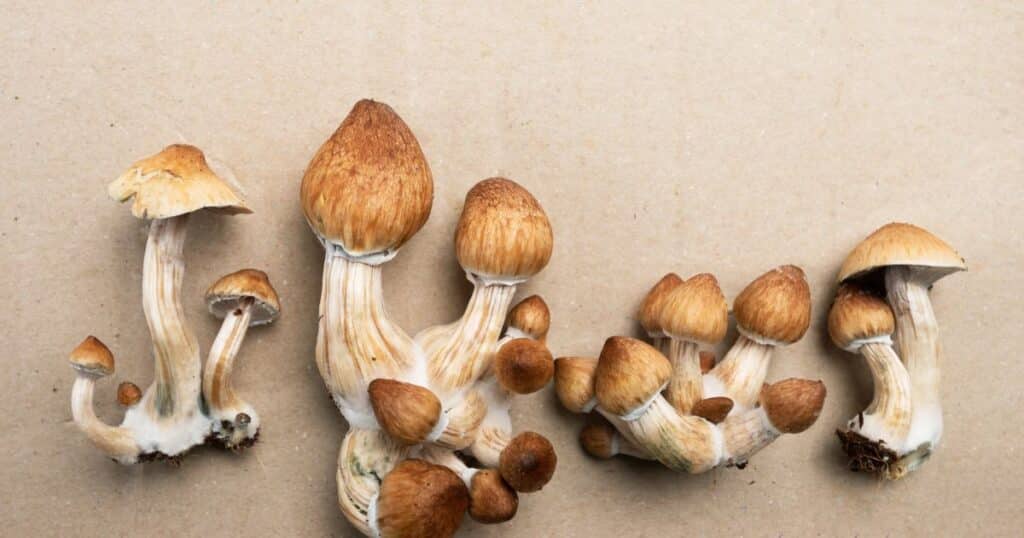The term psychedelic therapy describes a group of therapies that employ classic psychedelics, such as “magic” mushrooms (psilocybin), or non-classic psychedelic-like drugs, such as ketamine and MDMA. Psychedelic therapy is a rapidly developing field in the mental health space.
Much of the research surrounding this type of therapy has focused on its potential benefits for treating depression, anxiety, substance abuse disorders, eating disorders, and end-of-life challenges; however, more research must be done before we know its efficacy.
Psychedelic therapy typically involves an 8–12 week process that includes regular psychotherapy and several drug sessions where psychedelic substances are administered in controlled settings under the supervision of a therapist.
The effects of psychedelic drugs can vary considerably, depending on factors such as dosage, setting, and individual expectations. Under appropriate conditions and in therapeutic settings, many individuals report feelings of insightfulness, euphoria, spiritual connection with the universe or ‘Higher Power,’ as well as enhanced creativity.

Although there is still much to be understood about the potential health benefits of using psychedelics in clinical contexts, research has suggested that psychedelic-assisted therapy could profoundly treat mental health disorders and other issues.
Psychedelics For Depression and Anxiety
Depression and anxiety are among the most commonly treated mental health disorders in the US today. And, psychologically informed psychedelic-assisted therapy has emerged as a potential treatment option for those who have not responded to traditional medications or psychotherapies.
By combining psychedelics with supportive psychotherapy, it is possible to achieve powerful and long-lasting effects in treating depression and anxiety symptoms.
For instance, one study found that psilocybin-assisted psychotherapy and cognitive behavioral therapy (CBT) successfully reduced depression over six months; however, individuals who underwent psilocybin-assisted treatment experienced significantly more significant reductions in depression than those treated with CBT alone.
Similarly, multiple studies have reported positive outcomes in treating anxiety symptoms with psychedelics.
As with any medical treatment, caution is needed regarding psychedelic-assisted therapy for mental health disorders. It is essential that individuals who are considering exploring this type of therapy seek out a qualified therapist or healthcare provider and discuss all risks and potential benefits before proceeding.
Additionally, it is essential to note that many classic psychedelics are still illegal in the US, and these substances should not be used without proper legal guidance.
Psychedelics For Substance Use Disorder
Substance use disorder is a significant public health concern in the US and many countries around the world. And while traditional treatments such as detox, medication-assisted treatment, counseling, and 12-step programs are often successful in helping individuals overcome substance abuse issues, they do not work well for everyone.
As such, there has been growing interest in exploring whether psychedelic-assisted therapy may be effective for treating addiction issues.

In particular, research has suggested that psilocybin may have powerful effects on reducing cravings and relapse rates among individuals struggling with substance abuse disorders. For instance, one study found that psilocybin-assisted psychotherapy was associated with significant reductions in alcohol and cocaine use. Similarly, the psychedelic drug ibogaine has been explored as a potential treatment for opioid addiction.
As with any medical treatment, caution should be taken when considering psychedelic therapy for substance use disorder treatment. Speaking with a qualified healthcare provider and discussing all risks and benefits before proceeding is essential.
Psychedelics For Eating Disorders
Eating disorders are complex mental health issues that affect countless individuals worldwide, and traditional treatments such as cognitive behavioral therapy, dietary counseling, and medication management are often effective in helping patients manage their symptoms.
However, psychedelic-assisted therapy has recently emerged as an intriguing option for those who have not responded well to conventional treatments.
Research suggests that psychedelic drugs may effectively treat eating disorders by addressing underlying psychological issues and providing individuals with insight into their behaviors.
End-of-Life Challenges
End-of-life challenges can be some of the most difficult experiences an individual can go through, and any type of relief from pain and psychological distress is welcomed. Recently, psychedelic-assisted therapy has been explored as a potential treatment for end-of-life challenges such as depression and anxiety.
For instance, one study found that psilocybin-assisted psychotherapy effectively reduced anxiety symptoms in individuals with late-stage cancer. Similarly, another trial reported that participants who underwent psilocybin-assisted therapy experienced significant reductions in depression over six months compared to those treated with cognitive behavioral therapy (CBT).
Furthermore, psychedelics have been shown to induce feelings of awe and spiritual connection that may help cope with end-of-life struggles.
It is important to note that more research is needed before psychedelics can be definitively recommended for treating end-of-life challenges. Overall, psychedelics are showing incredible promise for treating various mental health issues, and more research is needed to better understand how these substances may be used safely and effectively.

With the proper precautions and guidance, psychedelics could potentially provide relief to those who have not found success with conventional treatments.
Research suggests that psychedelics may effectively treat conditions such as substance use disorder, eating disorders, and end-of-life challenges by addressing underlying psychological issues and providing individuals with insight into their behaviors.
While more research is needed to better understand the efficacy of psychedelic therapy, it is clear that these substances have the potential to provide relief to those who have not found success with conventional treatments.
Enjoyed that first hit? Come chill with us every week at the Friday Sesh for a freshly packed bowl of the week’s best cannabis news!
















